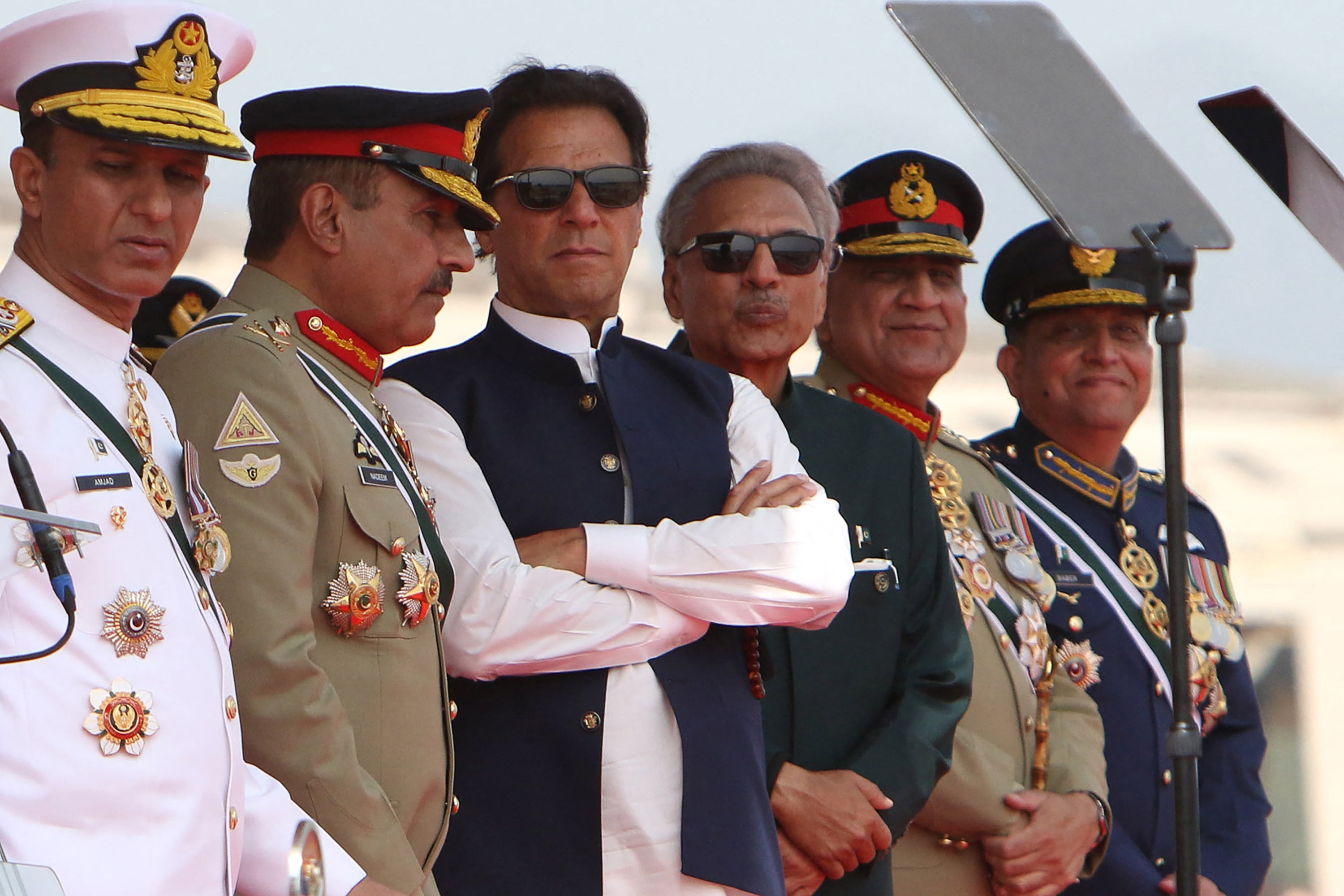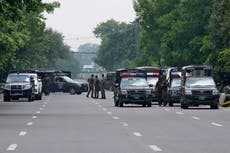Pakistan in constitutional crisis as laws unsigned by president cleared by government
Bills have already been cleared by both houses of Pakistan’s parliament

Pakistan’s president Arif Alvi refused to sign into law two bills that would allow authorities more power to prosecute people for acts against the state and military, flagged as unconstitutional by the country’s ministry of law.
Dr Alvi, a member of former prime minister Imran Khan’s political party Pakistan’s Tehreek-e-Insaf, has said he disagreed with the laws passed by the current coalition administration of political rival and prime minister Shahbaz Sharif, sparking a constitutional crisis.
"As God is my witness, I did not sign [the] Official Secrets Amendment Bill 2023 & Pakistan Army Amendment Bill 2023 as I disagreed with these laws," Dr Alvi said in a social media post.
The bills, granting more power of prosecution to the administration, have already been cleared by both houses of Pakistan’s parliament.
However, the president has asked his staff to send back the bills without his signature to the legislature, marking his dissent, and within the stipulated period of 10 days to render them ineffective but it did not happen.
“I asked my staff to return the bills unsigned within stipulated time to make them ineffective. I confirmed from them many times that they have been returned and was assured that they were. However I have found out today that my staff undermined my will and command. As Allah knows all, He will forgive IA. But I ask forgiveness from those who will be affected (sic)," the president said.
Under Pakistan’s Constitution, if the draft bill remains unsigned by the president or is returned along with his observations and objections within 10 days after already being cleared by the two houses, it will become a law.
The move has sparked political back and forth between the administration’s Ministry of Law and Justice and the presidential office, as the former flagged “grave concern”.
"The President has two options: either give assent, or refer the matter to the parliament with specific observations" the ministry said in a statement, adding that the president had not fulfilled either option, resulting in the bills becoming laws.
"Such a course of action is against the letter and spirit of the constitution," it said.
This comes as the country’s Federal Investigation Agency (FIA) arrested Mr Khan’s close associate and PTI’s vice chairman Shah Mahmood Qureshi on Saturday and booked him under the Official Secrets Act, 1923 over his involvement in a diplomatic cypher.
Mr Khan is also among those named in the First Information Report (FIR) by the FIA for sharing the information contained in the cipher “by twisting the facts to achieve their ulterior motives and personal gains in a manner prejudicial to the interests of state security”.
Saturday’s arrest marks the latest development in the prolonged standoff between the administration of outgoing prime minister Shehbaz Sharif and his predecessor Mr Khan, who was jailed earlier this month on graft charges.
Join our commenting forum
Join thought-provoking conversations, follow other Independent readers and see their replies
Comments




Bookmark popover
Removed from bookmarks